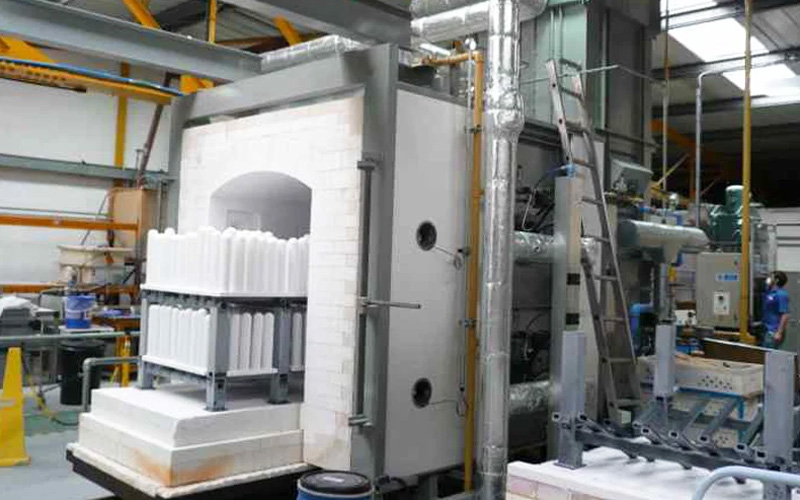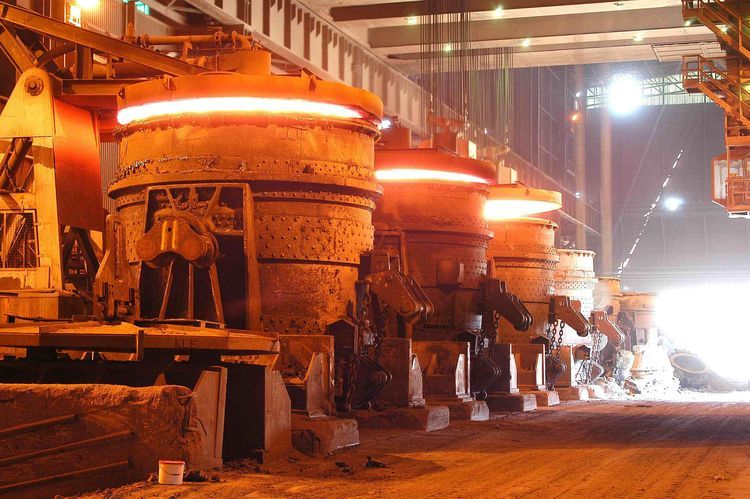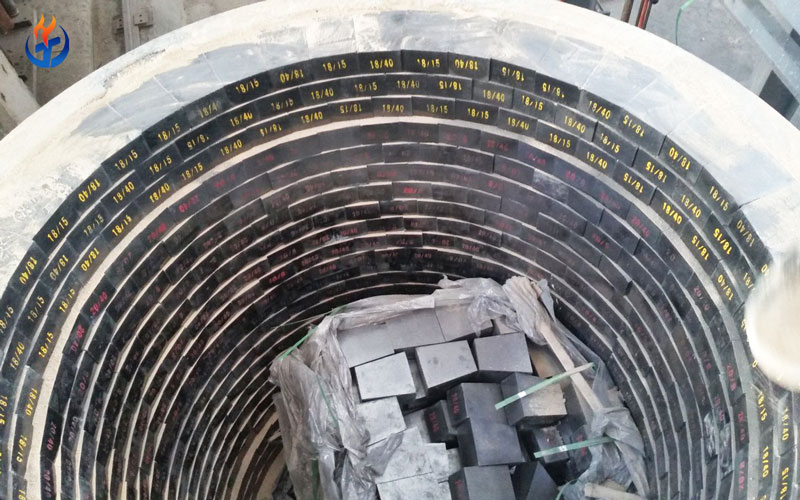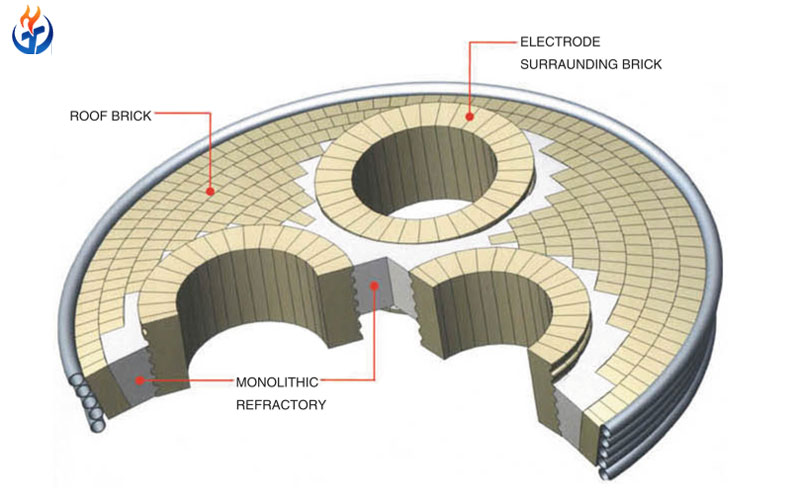Mullite refractory bricks play a crucial role in the ceramic industry, where high thermal stability, resistance to thermal shock, and long service life are essential for successful kiln operations. As a linchpin material for high-temperature applications, mullite bricks offer a combination of strength, low thermal conductivity, and chemical inertness, making them ideal for lining ceramic kilns. This article explores the importance of mullite refractory in ceramic kiln lining, its material properties, manufacturing process, key applications, and how to choose the right mullite brick for your kiln system.

What Are Mullite Bricks?
Mullite bricks are high-alumina refractory products made primarily from synthetic or natural mullite (3Al₂O₃·2SiO₂), a rare mineral with excellent thermal stability and strength. Mullite exists only at high temperatures, and it is valued for its high melting point (around 1840°C), low thermal expansion, and outstanding resistance to chemical attack.
These properties make mullite bricks a preferred refractory lining in various high-temperature furnaces and kilns, particularly in ceramic manufacturing, where firing temperatures can exceed 1600°C.
Why Use Mullite Refractory in Ceramic Kilns?
1. High Thermal Stability
Ceramic kilns must endure continuous high-temperature firing cycles. Mullite refractories can withstand prolonged exposure to intense heat without deformation, softening, or structural degradation. This is critical for ensuring the integrity of the kiln chamber and consistent ceramic production.
2. Excellent Thermal Shock Resistance
Thermal shock – caused by rapid temperature changes during kiln heating or cooling – can crack inferior linings. Mullite bricks exhibit superior thermal shock resistance due to their unique microstructure and low coefficient of thermal expansion.
3. Low Thermal Conductivity
Kilns lose heat through their lining. Mullite refractory bricks act as effective thermal insulators, reducing heat loss and improving kiln energy efficiency. This lowers fuel costs and enhances operational control.
4. Chemical Resistance
During firing, ceramic materials release volatiles like alkalis or acidic vapors. Mullite is highly resistant to chemical corrosion, meaning it can retain its structural integrity and composition even in reactive kiln atmospheres.
Common Mullite Brick Types Used in Ceramic Kilns
Mullite refractory bricks are available in various grades based on alumina content and density:
| Brick Type | Al₂O₃ Content | Key Features | Application Area |
|---|---|---|---|
| Standard Mullite Bricks | 60-75% | Good mechanical strength and thermal stability | General kiln lining |
| High-Purity Mullite Bricks | >75% | Better resistance to creep and slag | Hot zones, burner blocks |
| Lightweight Mullite Insulation Bricks (JM Series) | 40-70% | Low thermal conductivity, lightweight | Kiln insulation layer |
| Fused Mullite Bricks | >70% | Made from fused raw materials, superior strength | High-load bearing zones |
Lightweight options like JM-23, JM-26, JM-28, and JM-30 are often used for insulation in ceramic kilns where energy savings are a priority.
Applications of Mullite Refractory Bricks in Ceramic Kilns
▪ Firing Zones
The firing zone is the hottest part of the kiln. High-purity and fused mullite bricks are preferred here because of their ability to withstand the peak operating temperatures (up to 1700°C) and exposure to molten glazes or volatiles.
▪ Insulation Layers
Lightweight mullite insulation bricks are ideal for the backup or insulation layers. They help maintain internal temperature while reducing outer surface temperatures and thermal gradients.
▪ Kiln Roofs and Walls
Kiln roofs and sidewalls are typically lined with mullite bricks to resist sagging, structural stress, and chemical wear, ensuring consistent heat distribution across the firing chamber.
▪ Burner Blocks and Ports
In areas exposed to direct flame or combustion gases, mullite refractory materials provide excellent wear resistance and minimize deformation under load.
Advantages of Mullite Refractories for Ceramic Kiln Lining
Stable Performance at High Temperatures
Maintains mechanical strength and volume under long-term high-heat conditions.Long Service Life
Reduces maintenance frequency and replacement costs.Energy Efficiency
Enhances fuel economy due to low heat loss and improved insulation.Design Versatility
Available in standard and custom shapes to fit various kiln types (tunnel kilns, shuttle kilns, roller kilns, etc.).
How to Select the Right Mullite Brick for Your Ceramic Kiln
When selecting mullite refractory bricks for your kiln project, consider:
▪ Kiln Type and Operating Temperature
Tunnel kilns and roller kilns may require different grades of mullite based on temperature variation and mechanical stress.
▪ Thermal Insulation Requirements
Lightweight bricks (like JM-series) are ideal for energy conservation; dense mullite bricks are better for structural areas.
▪ Budget and Longevity
High-purity and fused mullite bricks are more expensive but offer longer service life in high-stress zones.
▪ Atmospheric Conditions
Choose bricks with high corrosion resistance if firing glazes or ceramic compounds that emit aggressive vapors.
Conclusion
Mullite bricks are a cornerstone of high-temperature ceramic kiln lining. Their excellent thermal performance, resistance to chemical attack, and long-term durability make them a trusted material in the ceramic industry. Whether used as structural refractory or insulation, mullite refractory enhances both the efficiency and reliability of kiln systems.
For ceramic manufacturers aiming to reduce energy costs, minimize downtime, and ensure product consistency, investing in quality mullite refractory is a smart, long-term choice.
Need High-Quality Mullite Refractory Bricks?
We specialize in manufacturing a wide range of mullite bricks, including JM-23, JM-26, JM-28, and JM-30 insulation bricks, as well as dense mullite refractories for high-temperature zones. With over 20 years of experience, we provide customized refractory solutions for ceramic kilns and other thermal applications.
📩 Contact us today to learn more about our mullite product line or request a free quote!



